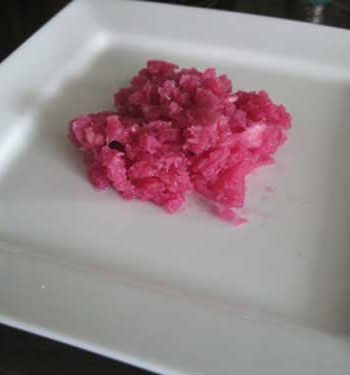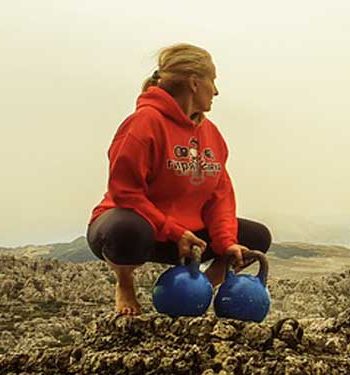This post contains affiliate links, which means I may earn some money if you click on one. Don't worry, there is no additional cost to you. Thank you for supporting my blog.
In the past few years, probiotic bacteria have been making headlines in the scientific world. The media is even catching on to something that has been known by many for long time; the health of our gut microbiome is essential for optimum health.
This study shows some species of “good bacteria” may play a role in reversing peanut allergies.
This study suggests the “terrible two’s” might be linked to the biodiversity of a child’s gut microbiome.
This study shows probiotic bacteria in kimchi can biodegrade pesticides.
This study shows infant colic may be treated with a specific species of bacteria, L reuteri.
There are so many reasons to take care of your microbiome.
Some say that cultured foods are the best way to obtain probiotics. I do agree with this, but not everyone has access to cultured foods or knows how to make them. I still take a probiotic supplement every day even though I consume cultured foods frequently. I look at it as a type of “health insurance”.
Over the past few years I have researched and tried different probiotics. My friends often ask me what probiotics I take. Our microbiomes are all different, therefore we may experience different benefits from different species of bacteria or yeast. So instead of recommending one type of probiotic supplement, I prefer to make a list of different probiotics I have used, and the reasons I think they are beneficial.
(There are many brands of excellent probiotics on the market I have not tried yet. If I exclude a product that you have a good experience with please share that information in the comments so others can benefit).
Pros – This probiotic does not need to be refrigerated. It is available for purchase through iherb, which was one of the reasons I used it when I lived in South Korea. Lactobacillus GG, the probiotic strain in Culturelle, is one of the most well-studied strains of beneficial bacteria (Source)
There is a “kids” formulation, Culturelle for Kids, so many parents feel more comfortable giving it to their kids because it is formulated for them.
It is dairy and gluten free. (Many people who are sensitive to dairy and gluten need probiotics.)
Cons – it only contains one species of bacteria.
This is my favorite brand of probiotics, it is the brand I am currently using. I first learned about it when I read the book “Gut and Psychology Syndrome.” This is the probiotic the author of the “GAPS” book used to reverse autism with her son, so it is pretty powerful.
Pros –
It has 14 species of probiotic bacteria.
It contains one species of SBO, (soil based organism). Most of us lack these types of bacteria because our soil is compromised from pesticide use and other industrial farming practices.
It does not have to be refrigerated.
There is now a version for infants, (which I have not used, but nice to know about).
Cons –
It can contain “trace amounts” of soy and milk.
I no loner recommend this probiotic, it is not manufactured by the same company and may have some quality issues.
These probiotics are terrific for infants. They are clinically proven to reduce colic in babies. (Source). I am not sure why this is not common knowledge but it should be.Though my daughter did not have colic, she did have some digestive issues when she was a baby and I have personally used this probiotic with her. This species of bacteria, L reuteri, is found in breast milk. However, not all women have it. (Which is why I took an L reuteri supplement while breastfeeding my babies).
This species may prevent gastrointestinal and respiratory illnesses, according to this study.
The Biogaia website has a page that lists a lot scientific studies associated with this strain of bacteria. (Source)
Pros –
Biogaia is formulated for infants, (not many probiotics are designed for this age group).
It seems to be a unique probiotic, I am not sure if it is present in most lactofermented foods.
Cons –
The infant drops need to be refrigerated.
This probiotic was recommended to me at a health food store. I used it when I was pregnant, (I added a tsp to my smoothies now and then). I first read about this company, Natren, in a book called “Listen to Your Gut“. The author recovered from Crohn’s disease, and she researched this company extensively. She vetted it and said their products are excellent quality. Since Crohn’s disease is a serious chronic gastrointestinal disease, and this woman recovered from it, her recommendations are probably good.
Pros –
It contains Bifidobacterium bifidum, and it is manufactured by a good company.
Cons – (for me)
This species is contained in BioKult, so I don’t see any benefit in adding it to my daily routine at this time.
It does contain milk, which is a con for many people with food sensitivities.
The above probiotics are the brands I have the most experience with. If I try other brands I will add them to the list.
One of the reasons I started this blog was because friends and family members often ask me questions about various health topics. Many have asked about the probiotics I use, so as I mentioned previously, this post is long overdue.
I provided links for purchasing in the blog post, (they are all available on Amazon). They are affiliate links; if you order by clicking on them I may get a small commission, but there is no extra cost to you. I appreciate the support for the upkeep of this blog.
Do you have a favorite probiotic?





No Comments